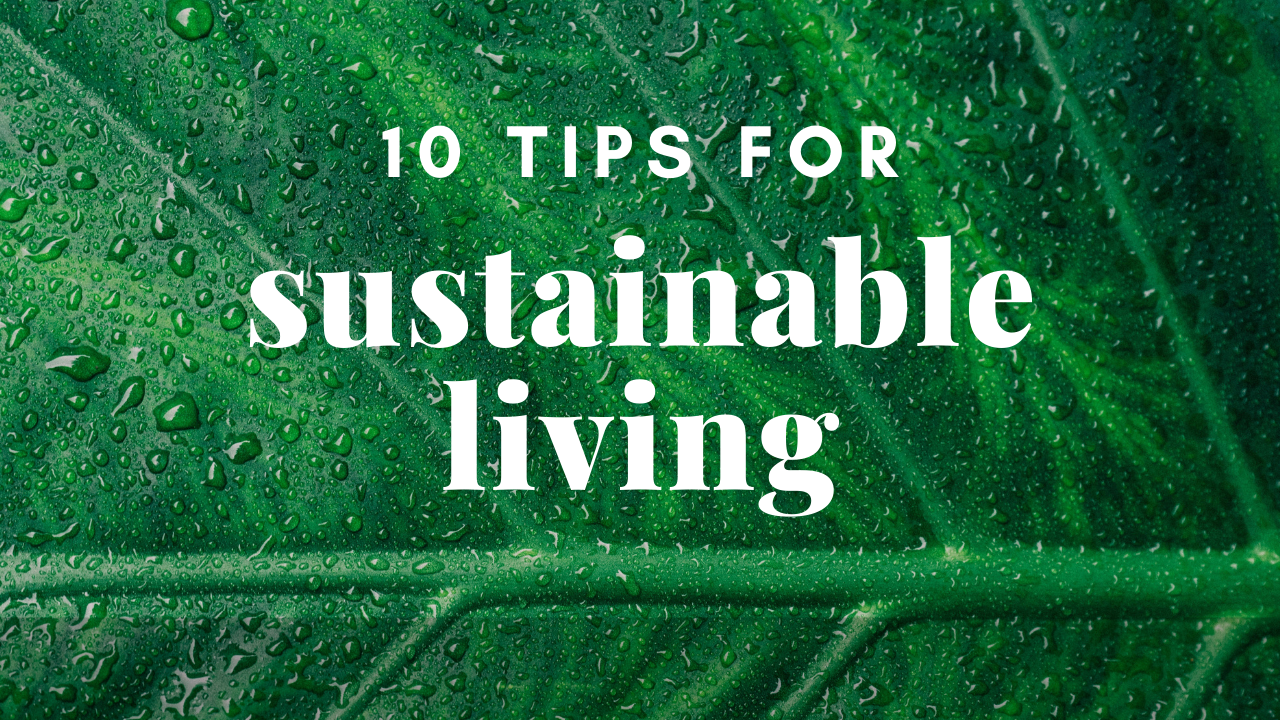What is Sustainable Living?
Right now, we are using energy and creating waste at a rate that isn’t sustainable, and our actions are leading to environmental issues like pollution and climate change. This is harmful to the planet and everything living on it.
Sustainable living is a lifestyle where one adapts the way they live to reduce the footprint they leave on the environment throughout their life. The overarching goal of sustainable living is to reduce “carbon emissions”, which means to reduce the carbon dioxide you release into the atmosphere and to live in a way that nurtures the planet, and everyone living here.

Carbon Emissions? What Does That Mean?
Carbon dioxide is a problem because it acts as a “greenhouse gas.”
Carbon dioxide emissions are human activities that release gas into the atmosphere, trapping the sun’s heat.
There are so many ways you can live sustainably;
- reducing plastic use,
- limiting travel by car,
- switching to clean energy sources,
- cutting down on meat,
- saving electricity,
- recycling your trash.
Sustainable Living
Ironically, the best way to improve your lifestyle is sustainably.
Start small, and improve every day, every week. Begin to question your habits, such as what goods you purchase, how you dispose of your rubbish, the food you buy, the clothes you wear, the furniture you go for.
Continue reading to discover 10 ways you can live a more green lifestyle.

10 Ways To Live More Sustainably
You can improve how you do things and become more environmentally friendly by using the tips below.
1. Recycle Your Rubbish (Properly)
If you can’t refuse, reduce or reuse something, the best thing you can do is recycle it.
If you have waste, dispose of it consciously by putting it into the correct bins.
2. Reduce or Stop Using Plastic
Single-use products such as plastic usually end up in landfills, the ocean, or otherwise somewhere, causing harm to the environment or wildlife.
According to National Geographic, 91% of plastic globally isn’t recycled.
The best way is to choose reusable options instead. Plastic is a big problem for our planet, and we need to take steps to reduce plastic pollution where we can.
3. Use Less Electricity
You can help to reduce carbon emissions by using less energy in your home. There are many ways you could do this, including switching off standby appliances, turning down the heating and hanging clothes outside instead of putting them into a drier.
Oh, and try to remember to switch off lights when you leave a room. The simple things can make a big difference, and you can probably save some money too!
4. Use Less Water
Letting the tap run while washing dishes or brushing your teeth is a big waste of resources. Instead, we can save water by turning it off when not using it and setting time limits on baths and showers.
5. Don’t Waste Food
If you have leftovers, don’t throw them away. Instead, save them for your lunch or dinner the next day. If food goes off, make use of compost.
6. Eat Less Meat and More Plants
Meat production is a massive contributor to climate change. By eating less meat, we can help reduce the amount of pollution in our environment.
Meat production contributes approximately 15% of all global greenhouse gas emissions, and cattle ranching is the most significant contributor to deforestation worldwide.
7. Drive Less
Using public transport, or better yet, walking or riding places is much better for the environment and your health. By walking, you can immerse yourself in nature, get fresh air, and improve your health at the same time through incidental exercise.
8. Buy Less - Donate Unused Items And Buy Secondhand.
If you are finished using something, donating it to a charity or an “op-shop” is a great way to reduce waste.
9. Use Environmentally Friendly Cleaning Products.
Most cleaning products on supermarket shelves have harmful chemicals that are bad for the environment, primarily due to water pollution. Our environment is already loaded with BPA, phthalates, perfumes, etc.
Industrial companies are primarily responsible for much of the damage, but we can all make a difference by making thoughtful choices with our everyday living.
Harmful chemicals include:
- Triclosan.
- 1,4-Dioxane.
- Nonylphenol ethoxylates (NPEs)
- Phosphates.
- Phthalates.
- Quaternary Ammonium Compounds (QUATs or QACs)
- Volatile Organic Compounds (VOCs)
- Methylisothiazolinone (MI)
10. Shop Local, And Eat Seasonally
When you avoid the large supermarket chains and industrial giants, you can support local businesses instead. Shopping local and eating what’s in seasons allows you to:
Support the economy of local workers, growers and grocers. Reduce supply chains used to transport out of season foods across the globe with trucks and aeroplanes.
Sustainable living means sustaining life on this planet, and we can all do a little bit to make a big difference.




